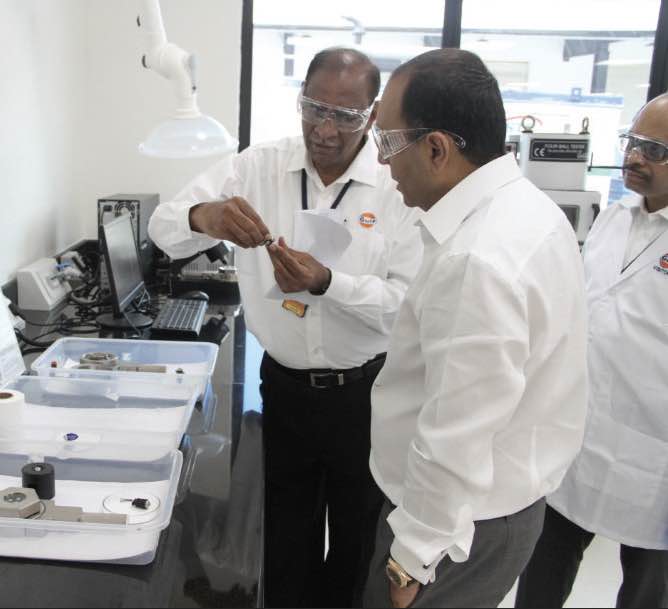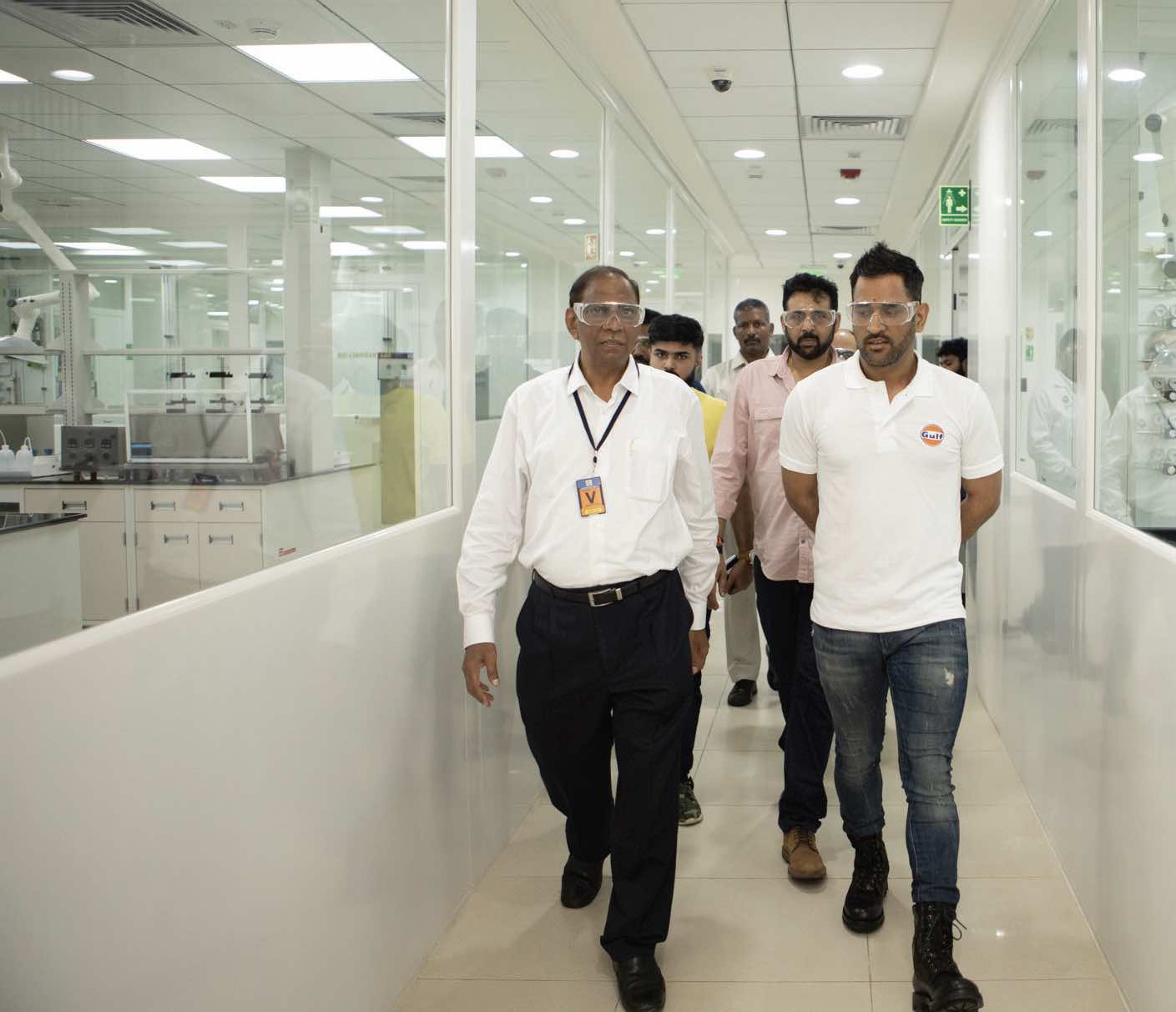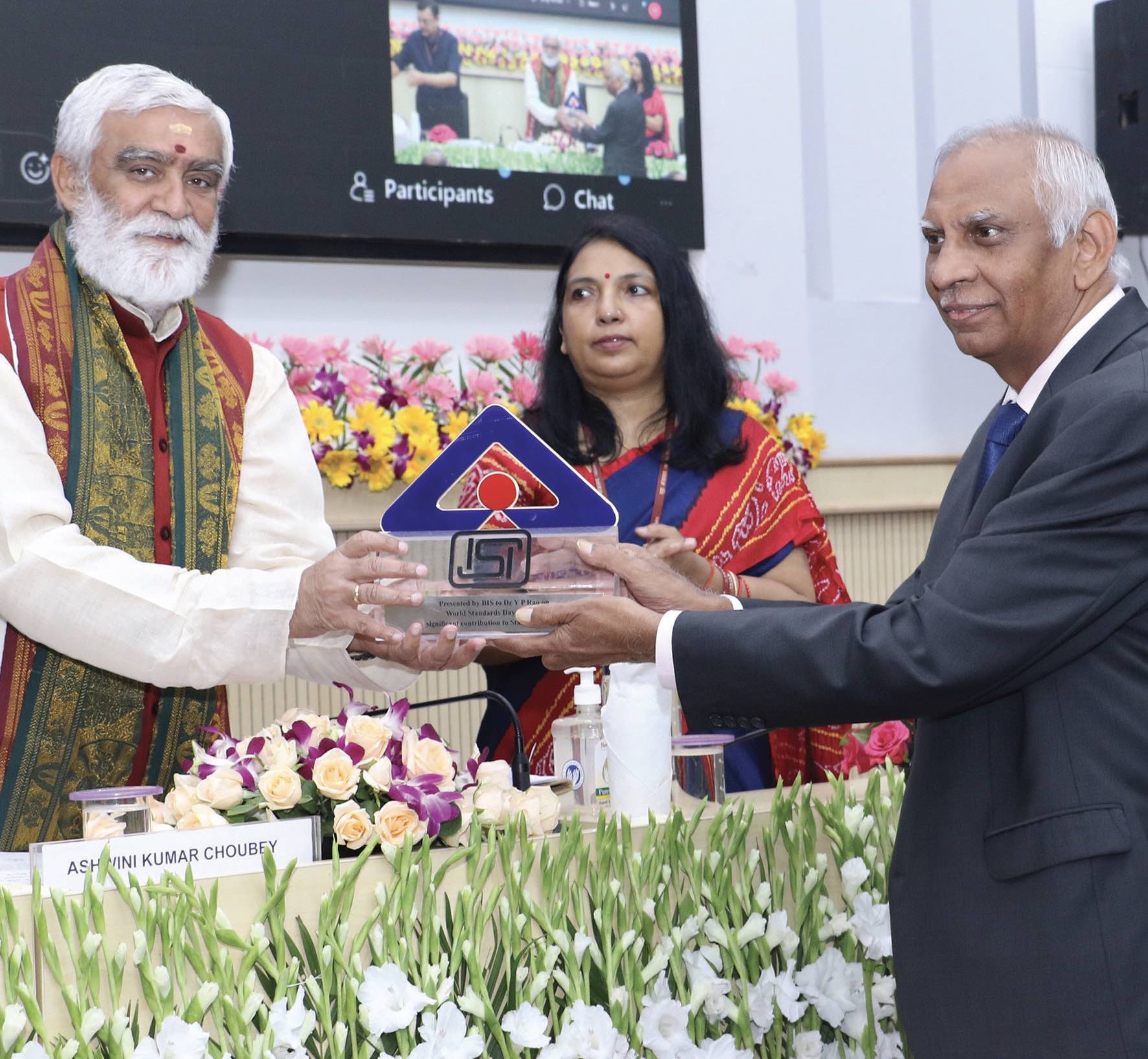TLT: How long have you worked in a lubrication-related field, and what have been the most significant milestones of your career?
Rao: I have been actively associated with the fuels and lubrication-related field for the past 40 years. After completing my doctorate in thermodynamics from Indian Institute of Technology, Delhi, I started my first job with Bharat Petroleum Corp. Ltd. (BPCL), the second largest national oil company in India, in its research department. This job allowed me to apply the knowledge I had acquired through real-life situations. My extensive career of more than 21 years with BPCL facilitated the acquisition of technical and personal skills, which helped me in understanding and solving real-life problems in the lubrication of internal combustion engines (ICEs) and application of fuels. I began developing expertise in areas such as product development, laboratory scale and field evaluation, OEM approvals, customer technical services, root cause analysis and providing lubrication solutions to field problems of automotive, construction and industrial equipment.
In 2004, I joined Gulf Oil International (GOI) as global technology manager and was subsequently elevated to the position of chief technology officer of this multinational oil company. I directed the global technology teams located around the world in the areas of R&D, product development, testing and approvals, customer technical services and quality assurance. While my first job with BPCL was predominantly national in nature, my assignment with GOI exposed me to the global environment. I acquired valuable experience in managing a multi-ethnic global team and obtained insights into critical lubrication aspects by interacting with global OEMs and industry professionals. On the professional front, the key drivers were identifying the future needs of the marketplace and value addition to customers/consumers through product differentiation, while protecting the health and the environment. Several new initiatives were identified to differentiate our own products from the competition, while managing changing emission regimes and product complexity, by judiciously selecting the most appropriate technology options and maintaining customer and OEM relationships.
Right from my BPCL days, I was attracted to initiatives related to the standardization of petroleum product specifications. For more than 30 years, I participated in various Fuels and Lubricants Committee activities of the Bureau of Indian Standards (BIS), the national body responsible for finalization of national standards. I have served as the chair of the BIS Lubricants and their Related Products Sectional Committee PCD 25 for two terms spanning six years and continue to serve as the convener of the Automotive, Aviation and Industrial Fuels Committee of BIS for the last 30 years. My responsibilities involved coordination with various committees for updating existing standards, creation of new standards and aligning them with global standards at a critical time when the nation was progressing rapidly through the upgradation of emission norms, quality of fuels and use of new equipment technology.
I also represented India seven times in the ISO/TC 28 Committee meetings dealing with specifications and test methods of fuels and lubricants.
 Dr. Y P Rao explaining the tribology test to the Gulf Oil International chair Sanjay Hinduja during an R&D visit.
TLT: What has been your most rewarding accomplishment throughout your career in the lubricants industry?
Dr. Y P Rao explaining the tribology test to the Gulf Oil International chair Sanjay Hinduja during an R&D visit.
TLT: What has been your most rewarding accomplishment throughout your career in the lubricants industry?
Rao: I consider myself fortunate to have worked for two organizations that have always maintained their uniqueness in their chosen fields and markets. I have therefore had several such rewarding accomplishments in my career. I would consider the creation of Gulf Oil Internationals’ Global R&D Centre at Chennai in India and mentoring young scientists and technologists as my most significant achievements of my career. It was highly rewarding to head a global team responsible for setting up a state-of-the-art facility for developing future lubricant technology. The facility was meant to bring together professionals such as engineers, chemists and tribologists and provide them with the right resources to realize their dreams and create world-class products for the future. I find it quite heartening to see the progress of the Global R&D Centre steadily contributing to growth and sustainability.
A few other noteworthy accomplishments are as follows:
•
Set the trend for extended drain oils for both commercial vehicles and motorcycles in India in 2006
•
Development of around 1,700 product formulations meeting diverse global needs and obtaining around 600 product approvals from global OEMs in both automotive and industrial segments
•
Pioneering the development and launch of India’s first branded gasoline in 2002, which gained a substantial market share
•
Mentored young professionals who have been doing extremely well in various parts of the world in the lubricant and additive industries.
TLT: What is the No. 1 piece of advice you would give to a person who might be interested in starting a career in the lubricants industry?
Rao: The lubricant industry continues to offer tremendous challenges and opportunities for young people interested in pursuing a career in this field. My main advice to a new entrant would be to gain as much knowledge as one can about lubricant trends, emerging mobility options and sustainability. In my learning years, knowledge was restricted to textbooks and lectures. Information was an item of scarcity. Today, the internet and social networks have changed all that in the most dramatic manner.
Knowledge sources are at our fingertips and freely available. People aspiring to make a career in lubricants can use these readily available resources to try to discern the challenges and opportunities of the lubricant industry and grasp the needs of the community and the customer. The industry provides opportunities for choosing and pursuing the areas of work of one’s interest by aligning with the organization’s requirements. A new entrant needs to be prepared to continuously upgrade the necessary knowledge and skills in different facets of lubrication.
TLT: Throughout the different segments within your career, which one has been the most interesting, challenging and/or rewarding?
Rao: Right in the initial stages of my career in BPCL, I had developed fascination for the extension of drain intervals of engine oils with a view to add value to the customers and conserve scarce resources. After joining GOI, I had identified the opportunities for the extension of drain intervals of commercial vehicle lubricants to help reduce operating costs and aid the conservation of precious resources.
One of the projects I worked on jointly with a leading OEM in India was extending the drain interval of the heavy-duty diesel engine oil. To start with, I identified the potential areas of improvement by evaluating the drained oils from in-service vehicles in field. I also identified the changes being made by the OEM in engine design, fuel injection equipment and injection timing to meet the next stage of emission norms. We then assessed the potential impact of these changes in terms of additional severity on the engine oil. Then we identified a few potential formulations and conducted lab scale evaluation to verify optimum performance in terms of oxidation stability and soot handling capability besides other parameters. The objective was to ensure that the extended drain oil did not compromise other capabilities, such as wear protection, deposit control and alkalinity retention. And finally, the cost had to be well within the OEM targets to provide benefit to all stake holders, including the end-customer/consumer.
 Gulf Oil International hosting a visit from Mahendra Singh Dhoni (right), former cricket captain of the Indian national cricket team, in the Global R&D Centre (Dr. Y P Rao pictured left).
Gulf Oil International hosting a visit from Mahendra Singh Dhoni (right), former cricket captain of the Indian national cricket team, in the Global R&D Centre (Dr. Y P Rao pictured left).
After finalizing the optimum candidate in lab scale evaluation, we conducted validation through real-life field tests in different engine/vehicle platforms under diverse operating conditions. The project was successful after the OEM customer approved the engine oil for an extended drain interval of two times and, thereby, we became the first marketer to develop and market the extended engine oil in this category. Having experienced success with this project, we developed and successfully field evaluated all other fluids of commercial vehicles and provided the extended service interval benefit to heavy-duty commercial vehicle OEMs and their customers. The expertise obtained in this project was extremely useful to formulate the tailor-made products and provide extended service interval fluids to various other OEMs.
Another most challenging project was the identification of the root cause for failures of submerged fuel feed pumps in cars in a particular region, when it started affecting the image of the most successful branded fuel launched during my tenure with BPCL. After a thorough investigation by visiting the customers, OEMs and their dealers and the refinery supplying the base gasoline for blending of branded fuel in that region and laboratory simulation studies, it was identified that the mercaptans present in the base gasoline were causing corrosion and eroding the copper wire pigtail resulting in the snapping of the circuit. This root cause analysis helped in solving the problem by providing Merox treatment to the base gasoline stream in the refinery and thereby helped in salvaging the most successful branded fuel.
TLT: What are some of the most technical lubrication-based concepts or topics you have encountered throughout your career?
Rao: Most advancements in lubricant performance have been driven by the need to improve performance, comply with emission norms and reduce operating costs. Clean air, reduction of carbon footprint and consumer expectations have been the most challenging aspects. The twin targets of clean air and fuel economy have led to many innovations in terms of engine/vehicle technology and after treatment devices (ATD), which have, in turn, created new associated enabling fluids like ultra-low sulphur diesel (ULSD) fuel and diesel exhaust fluid (DEF). This, in turn, created the need for special engine oils with chemical limits which are compatible with the components of the ATD. OEMs, in their effort to reduce noxious emissions and themcarbon footprint, have gone in for major vehicle and engine design changes. This also created a need for very low viscosity lubricants for these specially engineered vehicles, which brings with it new concerns about engine durability, calling for a careful selection of the additive technology and base oils. Low viscosity lubricants are becoming mainstream products even for heavy-duty vehicles because of the obvious fuel economy benefits. This will lead to new developments in the industry.
The COVID-19 pandemic and the severe climate change incidents witnessed frequently around the world have alerted the auto and oil industry about the urgent need to factor in sustainability in all aspects of the business. In the future, the major focus will be on development of energy-efficient and resource conserving lubricants and the increased use of biobased components in fuels and even in lubricants. Inevitable migration to electric mobility will create a need for newer operating fluids compatible with the new materials required for electric vehicles.
 Dr. Y P Rao receiving an award from Shri Ashwini Kumar Choubey, Honorable Minister of State for Consumer Affairs, Food and Public Distribution, Environment and Climate Change, in recognition of the significant contribution made in formulating Indian Standards for Motor Gasoline and Diesel Fuels.
TLT: What is the one thing you wish you would have learned earlier in your career?
Dr. Y P Rao receiving an award from Shri Ashwini Kumar Choubey, Honorable Minister of State for Consumer Affairs, Food and Public Distribution, Environment and Climate Change, in recognition of the significant contribution made in formulating Indian Standards for Motor Gasoline and Diesel Fuels.
TLT: What is the one thing you wish you would have learned earlier in your career?
Rao: I wish I would have learned the formulation aspects of additives earlier in my career by working in the R&D department of an additive company. This would have helped me in reducing the gap between the conception of new product requirement and bringing it to market.
You can reach Dr. Y P Rao at yprao@gulfoil.co.in.